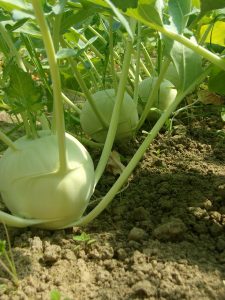The COVID-19 outbreak has upended all of our lives, to the extent that it’s hard to imagine the world that we’re about to re-enter. In many cases, all we can do is wait and see. But there are a few instances in which we can play a central role in the restoration. Among them: the farm-to-table movement.

Last year, it generated $12 billion in income for small farmers and small-scale producers, including cheesemakers and vintners, according to a recent feature by Kim Severson for The New York Times.
“Since the pandemic hit, that conduit has shut down,” she writes. “The loss in sales could run as high as $689 million, with much higher costs in jobs and other businesses that make up the farm-to-table economic ecosystem, according to a report compiled in March by the National Sustainable Agriculture Coalition.
“For the first few weeks, farmers scrambled to sell their crops. Some turned to online sales or tapped a renewed interest in community-supported agriculture, or CSAs, in which farmers sell subscriptions for boxes of produce. Others delivered food to restaurants that had turned into pop-up grocers, or doubled down on the farmers’ markets that remained open. Many sent what they could to relief kitchens.”
With the closure of restaurants everywhere, a pipeline that was decades-in-the-making was effectively dismantled overnight. Many growers are now vying for a share of the $9.5 billion in relief money that Congress set aside for farmers who grow specialty crops, supply farmers’ markets, and raise livestock, according to Severson.
If there’s a silver lining for farmers around here, it’s this: Spring is one of their slowest times of the year. Beginning in June, however, the urgency to correct the situation will grow with each new month. Until it becomes clear how restaurants will recover from this, farmers may have little choice but to go hyperlocal this summer, selling their crops at farmers’ markets and their own food stands and CSAs.

Growing Community
Signing up for a CSA this spring is one big way you can show your support for a small farm. These are a few of our favorites.
Roots to River | Solebury
They’re planning to grow 250 varieties of veggies this season—all of it without a single chemical.
Sandbrook Meadow Farm | Sergeantsville
Certified-organic since 2012. And one of the most convenient CSA arrangements around.
Rolling Hills Farm | Lambertville
In terms of acreage, Rolling Hills is relatively tiny, even for a small farm. But it consistently produces—organically, of course—some of the biggest flavors around come summer.
Tinicum CSA | Upper Black Eddy
Concerned about how many different hands may touch your share? Tinicum CSA is, too.



